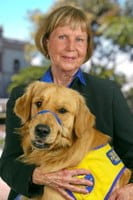LEAD
To Problem-Solve Creatively, Scrutinize Conventional Wisdom
by Dr. Leslie Hennessy
 In order to live effectively, humans must learn to activate their creativity. Creativity is necessary to support humankind’s success on the planet and promote the advancement of civilization. Also, global society faces complex problems that can only be solved by tapping creative capabilities.
In order to live effectively, humans must learn to activate their creativity. Creativity is necessary to support humankind’s success on the planet and promote the advancement of civilization. Also, global society faces complex problems that can only be solved by tapping creative capabilities.
Many theories have been advanced concerning the best creative techniques to be used to find problem solutions. Most approaches begin with an analysis of the problem. By focusing on the scope and boundaries of a problem, a more specific understanding of the issues is likely to result. An understanding of the problem can generate the problem parameters that are understood to be givens in any problem scenario.
However, often times the commonly accepted aspects of a problem present a danger to the creative process because the givens of the scenario are never truly investigated, but rather are just accepted. In the vernacular, such aspects of a problem that go untested are often called conventional wisdom.
Conventional wisdom represents generally accepted ideas and opinions. These commonly held beliefs have gained acceptance over time and generally are not scrutinized.
Conventional wisdom is often akin to accepting facts based on faith. The accepted information is not necessarily based on science, and its genesis may be folklore, stereotypes, sensationalized headlines, or poorly designed research that represents opinion. Often, conventional wisdom involves shallow analysis or the acceptance of statements that reflect a superficial interpretation of a complex phenomenon. Since conventional wisdom is presented as fact, yet lacks close scrutiny, its validity is open to debate. In other words, being generally accepted does not make information accurate.
Given this analysis of conventional wisdom, individuals seeking to problem solve should avoid a blind acceptance of conventional wisdom. Whenever encountered, it is reasonable and prudent to assess the validity of the facts proposed. If facts are not supported by scientific evidence, it seems judicious to dismiss this wisdom as apocryphal. Another approach would be to publicly question such information, drawing attention to the shortcomings of the accepted statements. Ultimately providing contrary evidence to correct the accepted understanding of the facts is required.
One obvious reason to dismiss dubious explanations and ideas is that the information is faulty, providing an inaccurate view of a situation. However, there is another important reason to put aside such generally accepted beliefs; tolerance for these accepted accounts would hinder creative efforts because faulty premises, logic, and compromised problem identification cannot lead to successful creative responses. Once flawed conventional wisdom is exposed, however, there can be a reestablishment of debate on the subject. Then critical thinking can be used to suggest a more accurate view.
The field of economics provides an interesting and powerful example of how conventional wisdom, accepted by economists, obscured the understanding of how humans make decisions. For decades, economists claimed that humans always act in their own best interest, consistently choosing to maximize value in their decisions. Herbert Simon disputed this claim and proposed an alternate theory—the theory of bounded rationality [1]. This theory claims that humans are not always rational in their decision making because they are constrained by their limited cognitive ability and the finite information they have available to make decisions.
Despite numerous studies that demonstrate that humans are boundedly rational, some economists still clung to the notion of human rationality. Even when Simon was awarded the 1978 Nobel Prize in Economics for his work, some researchers were still skeptical. Ironically, the scientists who refused to accept the scientific evidence were demonstrating the point that humans are not always rational.
The lesson is that any information, purporting to be knowledge should be thoroughly scrutinized before it is accepted as truth. Additionally, pronouncements of conventional wisdom should be considered red flags because such information may slip through in problem analysis and be accepted without thorough examination.
[1] K. M. Eisenhardt and M. J. Zbaracki, “Strategic Decision Making,” Strategic Management Journal 13 (1992): 17-37.
Dr. Hennessy joined the MPS faculty in spring 2018. She has a Ph.D. in Leadership Studies from the University of San Diego. She wrote a book titled, “Activating Creativity: Insights and Wisdom of MacArthur Fellows.” For more information about Dr. Hennessy’s research, go to www.creativityandleadership.org.